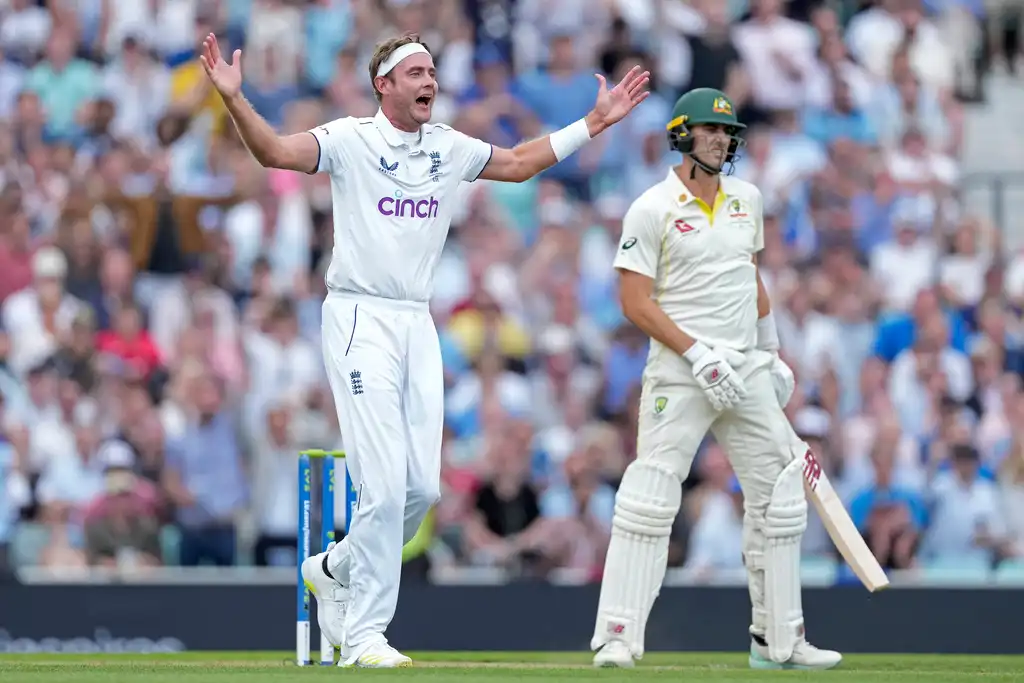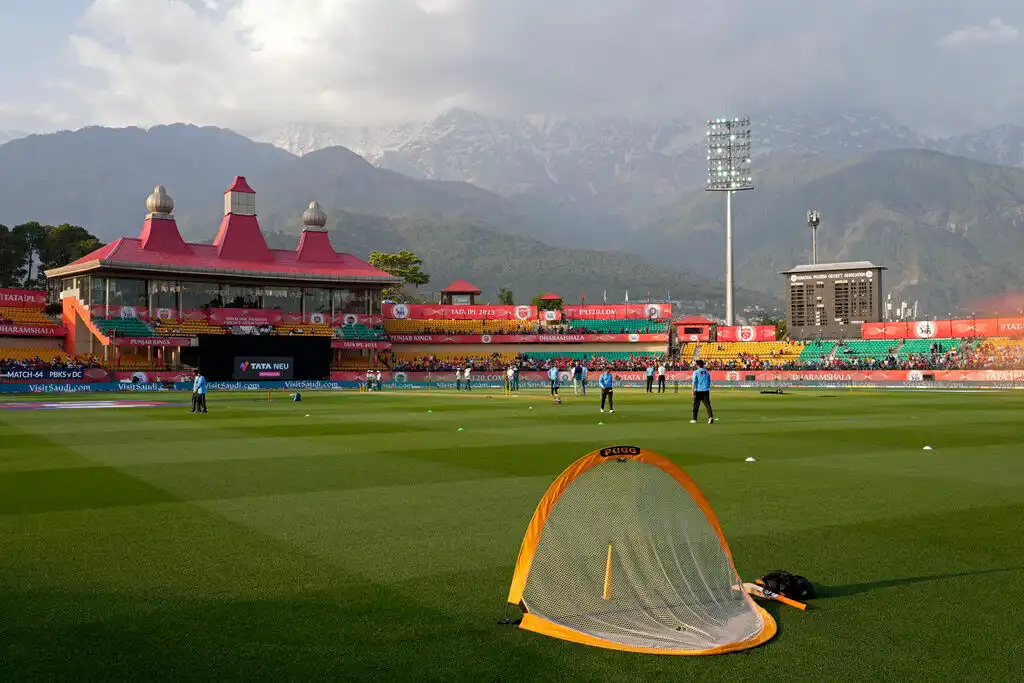 Broad alongside Moeen Ali retired after Oval Test (Twitter)
Broad alongside Moeen Ali retired after Oval Test (Twitter)
Before this final Ashes Test, the curtain had come down on no less than 285 Test careers at the Oval. Close to double the SCG which is the next nearest Test venue for retirements.
Certainly, two cricketing knights from Australia and England did it in very different style a full seventy years apart. In 1948, Sir Don Bradman scored the most famous duck in cricket history, bowled second ball by Eric Hollies to remain with an eternal average of 99.94. In 2018, Sir Alastair Cook rounded off a year of generally poor returns with an immaculate 147 against India in his curtain call.
And now barring the most unlikely Lazarus like return of Stuart Broad or Moeen Ali it will be 287 Oval final bows. Whether Jimmy Anderson yet makes it 288 or Australia calls time on David Warner and doesn’t grant him his SCG farewell remains to be seen. Both of them have the best part of 6 months to reflect before England in stress-test Bazball in India and Australia tackle Pakistan at home.
But that’s for future debate. Broad and Ali both played their part in the pulsating final Ashes 2023 Test, but only Stuart Broad did it in true Broadway style. Graham Gooch once famously asked Ian Botham, who writes your scripts Beefy? The same question could be aimed towards Broad, who choreographed the most perfect of stage exits for himself, with notable support from Jonny Bairstow who safely pouched Todd Murphy and Alex Carey in rapid order and of course from Ben Stokes, who stage directed Broad’s opportunity to write his own historic finale.
 Broad scalped final two wickets in Oval Test (AP Photo)
Broad scalped final two wickets in Oval Test (AP Photo)
Ball changes, bail switching and rain interruptions notwithstanding, in front of family, friends an adoring British public and a grudgingly admiring Australian one, Broad managed to become the only player in Test history to conclude his Test batting career with a six and his bowling career with an Ashes winning wicket. It simply could not have been better and it provided this remarkable series with the last act that it deserved. Dare I say it, the result too. Victory, moral or real, for one side would have been the harshest of injustices for the other. Australia will feel the job was done and they hold on to the Ashes urn, but England became only the fourth side in Test history to haul back a 2-0 deficit and achieve a draw in a Test series.
From Zak Crawley’s sumptuous first ball cover drive at Edgbaston to Alex Carey’s final Broad induced nick behind at the Oval, the contrasting approach and style of the two teams elevated the series drama from physical to metaphysical, as divergent philosophical approaches were set in direct conflict. Along the way, we veered from tragedy, to comedy to melodrama, not just day by day, but session by session and over by over. Ben Stokes' “come and have a go if you think your hard enough” declaration in Birmingham was rather let down by butter fingered fumbling in the field. Australian captain Cummins stood firm against the odds with Nathan Lyon to see Australia home, but even then, had Stokes held on to an impossibly difficult chance off Lyon, history may have been rewritten.
At Lords, we lurched into Victorian melodrama as the dastardly Carey called the very spirit of the game into question, or simply played by the rules to wake up a dozy Bairstow, if you are Australian. Had Carey nipped away from Lords, sporting a waxed moustache, top hat and swirling cape in order to tie a distressed damsel to the nearby jubilee line train track, it would have surprised no English fan. English batsmen then proceed to subsequently fall on traps in the manner of German guards in a second-rate English war movie before Nathan Lyon epitomised all the qualities of a tragic hero, limping to stand firm against the opposition in his country’s hour of need.
By Headingley, England had learned a degree of nuance to temper their action-man approach. Whereas Australia had lost their tragic Lyon King, England found two returning heroes in Wood and Woakes to the most telling effect. Together their raw speed, with guile and precision tailored for English conditions, backed by the most passionate of crowds got the job done. Wood's thunderbolts are just too much to handle.
On we went to Old Trafford, for what was always going to be a race against the Manchester elements. Australia appeared lost and without shelter against a tempestuous assault from England’s batters, but found the weather to be their friend. Although battered, bruised and bedraggled, they left the North West with the Ashes trophy as their prize. Frustration for England, but ultimately no complaints. It was Manchester after all. Rain happens. Often.
And so, to the Oval. Bazball validated in the eyes of England. Broad’s heroics to conclude the show and bring down the house. Australia left to feel that the end had come just in time at Old Trafford as perhaps the tide had turned irresistibly against them, for this series at least, by the time they were back in London.
England’s runs across the series came at 4.74 an over, the highest rate in Ashes history. Australia scored at a more sedate 3.35, the difference of 1.39 the largest ever. Australia totalled 3,010 series runs, while England managed 3,079, a minuscule numerical difference, but the Aussies needed 1,500 more balls than England to attain their total.
But victory is not always to the fleetest of foot. This gripping drama concluded with spoils shared and all the heroes living to fight another day. At least, those that choose to. For those that haven’t made that choice, their place in Test history has been secured in epic style.






